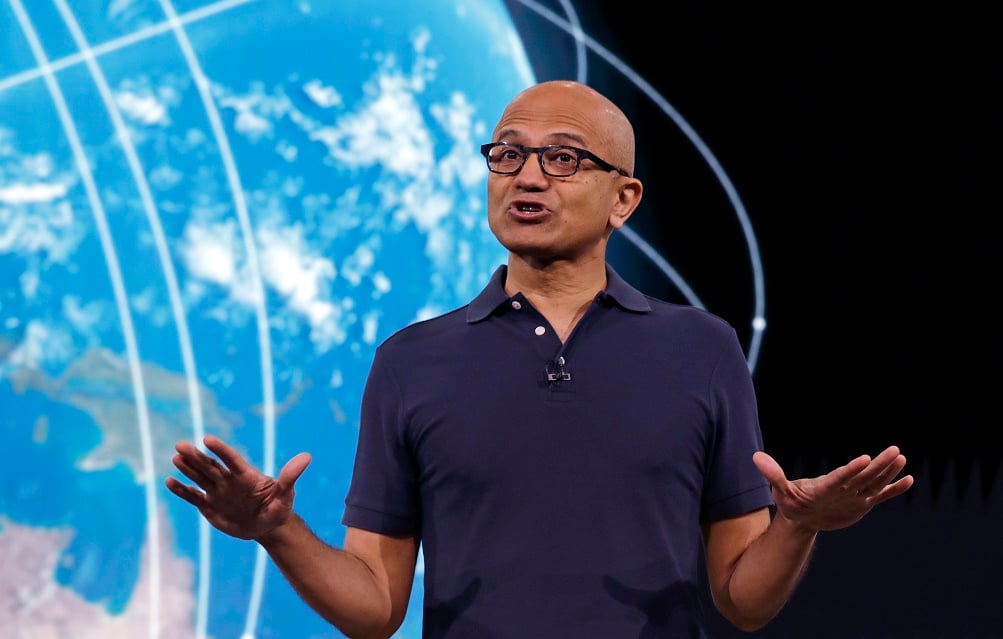SAN FRANCISCO (CN) — Activision Blizzard CEO Bobby Kotick continued his testimony Wednesday morning at an evidentiary hearing in federal court, where he reiterated his company has no plans make Call of Duty or other Activision Blizzard titles exclusive to Microsoft’s Xbox or PC game systems.
U.S. District Judge Jacqueline Scott Corley, a Joe Biden appointee, is considering the Federal Trade Commission's request to block Microsoft’s purchase of Activision Blizzard until the deal can be examined during an antitrust trial. The FTC sued to stop the deal in December 2022, saying a merger would give Microsoft all of Activision Blizzard’s future games, with the power to manipulate the pricing or withhold games from competitors like Nintendo and Sony.
Kotick vehemently denied Activision Blizzard wishes to make Call of Duty or any of its other games exclusive to Microsoft’s machines, saying that it would lead to a “revolt” by gamers.
“You’d alienate 100 million active players. Gamers are incredibly passionate, you get invested in the experience — it’s like a sport,” Kotick testified.
Of those 100 million active players, roughly 50 million play Call of Duty on Playstation, according to Kotick.
Satya Nadella, president and CEO of Microsoft agreed with Kotick, testifying he has “no love for the world” of exclusivity.
“I would love to get rid of the entire exclusives on consoles, but that’s not for me to define, especially as a low share player in the console market where the dominant player, Sony, has defined market competition using exclusives,” Nadella said to questioning from a Microsoft lawyer.
Kotick also said that there was no incentive for game developers to make a title worse on one console versus another, claiming it would harm the product, customers, and the game developers themselves.
“You’d get vitriol from gamers that would be well deserved. People who make video games have great pride in the work they do,” Kotick said.
Nadella agreed. "It makes no economic sense or no strategic sense. Our goal with Activision in particular, in their content and our content, is to get it on more platforms. That’s what we’ve done with Office and that’s what I want to do with gaming.”
He said he would “100%” commit to shipping Call of Duty on future consoles, including PlayStation and a potential Nintendo Switch successor.
In a ruling issued Tuesday, Corley allowed the claims of a group of gamers to proceed against Microsoft, finding the threat of Microsoft making Call of Duty an exclusive was not implausible.
“For example, plaintiffs allege how Microsoft has acquired other video game developers in the past and made the content exclusive to Microsoft’s gaming platforms, as well as why it did so,” Corley wrote. “Plaintiffs also allege that Microsoft has not abided by its promises to antitrust regulators in the past and thus they plausibly allege that it might not do so with regard to the Activision acquisition."
In 2021, Microsoft purchased ZeniMax Media for $7.5 billion. Shortly after, all of ZeniMax’s games became Xbox or PC exclusives.
Kotick testified he is against cloud- and subscription-based gaming models, including Xbox’s Game Pass service.
“I have a general aversion to the idea of multigame subscription services, maybe part of it is being in Los Angeles and having large, big media companies move their content to these subscription streaming services and the business results have suffered,” Kotick said.
Kotick said he would not put Call of Duty on a subscription service and that Activision Blizzard does not currently generate revenue from those services. The company has experimented with putting its products on streaming services in the past, however, Kotick admitted.
The feds pointed out that Call of Duty, along with games like Diablo, Candy Crush, and Overwatch, generate billions of dollars in revenue. Call of Duty Modern Warfare II grossed $1 billion dollars in 10 days this past November. FTC lawyers noted that Call of Duty led sales figures 13 years in a row, even in 2021 when Call of Duty Vanguard was the highest selling game in the world despite being labeled a commercial “disappointment,” according to Kotick.
Kotick acknowledged Call of Duty has “generally been the most successful” of all console games.
FTC lawyers continued to push Kotick, arguing that Activision Blizzard has an incentive to be everywhere with its titles, including cloud- and subscription-based services. The FTC noted Activision Blizzard had not made a formal decision to keep its game off of those services, leaving open the option that it could change its mind in the future.
Kotick said there could be some reasons to keep a game on subscription services, but that it should only be “for a small duration of time, not something sustainable.”
The FTC brought up the example of GeForce Now, a PC cloud gaming service. When GeForce Now was launched, Activision Blizzard removed its titles from the service. FTC lawyers’ implied Activision Blizzard removed its games because it didn’t have a deal with GeForce Now, proving that it would have kept its games on the streaming service for the right price.
Microsoft expert witness Dr. Elizebeth Bailey, an economist, took the stand and testified that all of her projections showed that Microsoft continues to finish behind Sony and Nintendo.
“No matter what metric we use, Xbox is in third place” for the last five years,” Bailey said.
Testimony wraps up Thursday.
Subscribe to Closing Arguments
Sign up for new weekly newsletter Closing Arguments to get the latest about ongoing trials, major litigation and hot cases and rulings in courthouses around the U.S. and the world.









